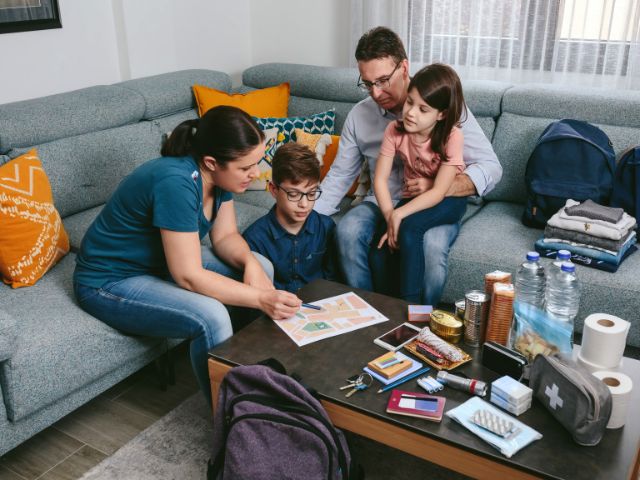
 news
news 
In times of crisis, it’s not just important but crucial to have a well-thought-out plan in place and be ready for any potential emergencies that might come your way. Dedicate time now to prepare your home for emergency situations. This way, you can significantly minimize the impact of disasters and ensure the safety and well-being of yourself and your loved ones.
Start this crucial process by conducting a detailed inspection of your property. Walk around both the interior and exterior of your home to pinpoint any potential hazards that could become problematic during an emergency. This proactive step is fundamental. It could involve evaluating the stability of trees that could fall, securing objects in your yard, or identifying flammable materials you should store in a safe location. Taking the time to identify and mitigate these risks before an emergency occurs can significantly reduce the chances of damage to your property and ensure the safety of everyone in your home.
Extended power outages due to severe weather conditions or unexpected electrical failures can critically disrupt your daily life. They can affect everything from food preservation to medical equipment operation. Investing in a generator can serve as a crucial backup plan. It allows you to maintain power to essential appliances, such as refrigerators and freezers. As a result, it ensures your food remains fresh and keeps vital medical equipment operational, safeguarding your health.
However, not all generators are equal. It’s important to understand the differences so that you can invest in a whole-home generator system with the features you need to stay safe. Consider your specific needs, such as the size of your home, the appliances you need to power, and your budget. This way, you can determine the best type of generator for your situation. With something like remote monitoring capabilities and weather resistance, a quality generator can help make emergencies easier.
Additionally, consider assembling a comprehensive emergency kit with essential items, such as:
When you pack an emergency kit with items like these, you’re making sure that no matter what kind of emergency you encounter, you’ll be ready. Also, it’s important to note that you should regularly check your kit to ensure there’s nothing broken, damaged, or expired in it.
It’s crucial to remain vigilant by consistently monitoring local news sources and weather channels. This will keep you in the loop about potential emergencies or hazardous situations developing in your area. Take the time to familiarize yourself with all possible evacuation routes from your home and neighborhood. All this understanding will help you know where to go in an emergency and what supplies you’ll need there to stay safe.
When you know how to prepare your home for emergency situations, you can significantly boost its safety for you and your loved ones. You shouldn’t leave preparation until the last minute—take proactive steps now to protect your home and family against the unpredictable nature of emergencies.
24World Media does not take any responsibility of the information you see on this page. The content this page contains is from independent third-party content provider. If you have any concerns regarding the content, please free to write us here: contact@24worldmedia.com